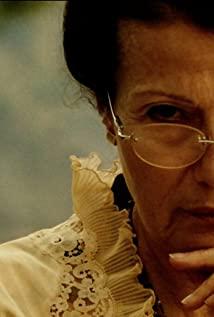The women living in Beirut, the “little Paris” in the Middle East, seem to be more “free” than women in other Islamic countries in the Middle East and West Asia, but they still live cautiously on issues such as love, marriage, sexual orientation, and age. The bitterness, stickiness, and flexibility of "caramel" are all attached to them.
The hot screening of "Why Home" in Mainland China has made many Chinese fans start to notice Nadi Labaki, a female director from Lebanon.
In the international film scene, Nadi Labaki has long been a filmmaker with a certain amount of weight. She can be said to be the "pro-daughter" of the Cannes Film Festival. The first feature film "Caramel" (2007) was nominated for the "Director's Fortnight". In 2011, her "Where shall we go" was nominated for the "One In the unit of "kind of attention", in 2018, "Why Home" was not only shortlisted in the main competition unit, but also won the jury award in one fell swoop. For more than ten years, Nadi Labaki has completed the "triple jump" at the Cannes Film Festival, the hall of contemporary art films, and has achieved remarkable results.
In addition to being a director, Nadi Labaki is also an excellent actor. She has appeared in most of her director's works, sometimes she is the "female number one". "Caramel" is a work written, directed and acted by Nadi Labaki, telling the story of five women in Beirut. "Caramel" is a group play, and the five heroines have similar roles, but Nadi Labaki can still be regarded as the "female number one."
Beirut is the capital of Lebanon and the most westernized city in the Middle East and West Asia. It is also known as "Little Paris".
In the history of Lebanon, it was successively ruled by Egypt, Assyria, Babylon, Persia, Rome, the Arab Empire, and the Ottoman Empire. After World War I, it became a French colony and gained independence in 1943. It is in such a complicated historical situation that Lebanon has become a place where Christianity and Islam meet. In Lebanon, the Christian population once had the advantage, but the five Middle East wars caused a large number of Muslim refugees to flood into Lebanon. Since the 1990s, the Islamic population has gradually gained the advantage.
Perhaps due to the influence of Christian civilization, Lebanon can be regarded as a more "civilized" Islamic country compared to other Islamic countries in the Middle East and West Asia. As the capital of Lebanon, Beirut has naturally become one of the most "civilized" capitals in the Middle East and West Asia.
So, how much "civilization" can women living in Beirut enjoy in a relatively private space? "Caramel" gives a more vivid and specific answer.
The story of "Caramel" mainly takes place in a beauty salon in Beirut. The customers of this beauty salon are basically women, so this is a relatively private space for women. There are three girls working in the beauty salon, Rayali (Nadi Labaki), Nisri and Rima. Jameel is a milf and disobedient former actor, and a frequent visitor to beauty shops. Rose, the tailor next door to the beauty shop, knows the girls in the beauty shop, and often helps them a little.
I believe that many people’s impression of women in Islamic countries in the Middle East and West Asia is that most of them lack basic “freedom” and wear a veil when they go out. It’s better to wear "hijeb" (to show their face), and to wear more strictly. "Nikabu" (showing only their eyes, maybe not even their eyes), they rarely go out to work, mainly doing housework.
But in Lebanon, women can generally "show their faces", and more traditional Muslim women also wear "hijeb". For the five women in "Caramel", Nisri should be a Muslim, because before she got married, her mother was wearing a "hijeb" to talk to her. The religious attributes of the other four women, forgive me, I cannot distinguish clearly. There is a scene in the film where a Catholic religious parade once arrived at a beauty salon. It is certain that there should be Christians in the beauty salon.
Although Beirut is relatively "civilized", from the experience of the five women, their lives are also affected by Islamic culture everywhere.
In the film, Rayali falls in love with a married man-she imagines that the other party will abandon her original family for her. This made her seem very passive and embarrassed in her family life-her family "urged into marriage" from time to time, which made her feel miserable. She wanted to spend his birthday with her beloved, but she couldn't find a suitable place. It turns out that in Beirut, it is very difficult for single women to open a room in a formal hotel. She had to pretend to be a married woman to open the house, but was asked to provide proof of marriage. As a last resort, she could only open a room in an irregular hotel (pornographic hotel or the like). The room was dirty, so she had to clean it herself. She also tried her best to arrange the "sweet scene", but as a result, the beloved him did not appear.
In fact, this married man never "appeared" in the film from beginning to end. This "arrangement" further strengthened the illusion of Rayali's love. However, in reality, a traffic policeman who admired her and reluctant to give her a ticket has been silently guarding her. After the disillusionment of love, Rayali finally noticed him in reality.
Nisri's wedding was just around the corner, but she was deeply worried-she was not a virgin. As a Muslim woman, premarital sex is "guilty", not to mention that the person who had sex with Nisri is not her fiancé. The "civilization" of Beirut is that there are doctors who can repair the hymen. In modern civilization, the "hymen" is just a medieval "curse", but this "curse" is still lingering on Muslim women. Beirut, the most "civilized", cannot solve this ancient "curse."
Rema has been a "female man" from the beginning of her appearance. Yes, she is a gay.
In the Islamic world, homosexuality is also "guilty", so Rima dare not face her true sexual orientation. Until "she" appeared, she actively "tempted" her.
In the film, we didn't see her and "she" together, but after "knowing each other", both her and "her" faces were filled with happy smiles. After all, this is the Middle East-West Asia, this is Lebanon, and this is Beirut. Being able to show homosexuality in such a subtle way is already very "daring."
Jammel may be the most "free" woman in "Caramel". She is married, she has children, and she has leisure. She went to auditions and tried to regain her career as an actress, but it was just a way of "leisure and entertainment" for her.
But she also has troubles, that is, she is not young anymore, she doesn't even come to "that" anymore. In the audition waiting room, at the wedding, she pretended to come to "that". It seemed ridiculous, but to cherish and love youth is a kind of "freedom" for women.
After waiting for decades, Rose finally waited for her "Prince Charming". However, she has an older sister, Lily, who is suffering from Alzheimer's. If she pursues her happiness, Lily will be left unattended-she can't bear to take this "cumbersome" into the life of "Prince Charming".
For Rose, it is a heavy responsibility and a relatively conservative value. And this kind of value comes more or less from the country and society where she lives.
The women living in Beirut, the “little Paris” in the Middle East, seem to be more “free” than women in other Islamic countries in the Middle East and West Asia, but they still live cautiously on issues such as love, marriage, sexual orientation, and age. The bitterness, stickiness, and flexibility of "caramel" are all attached to them.
View more about Caramel reviews











